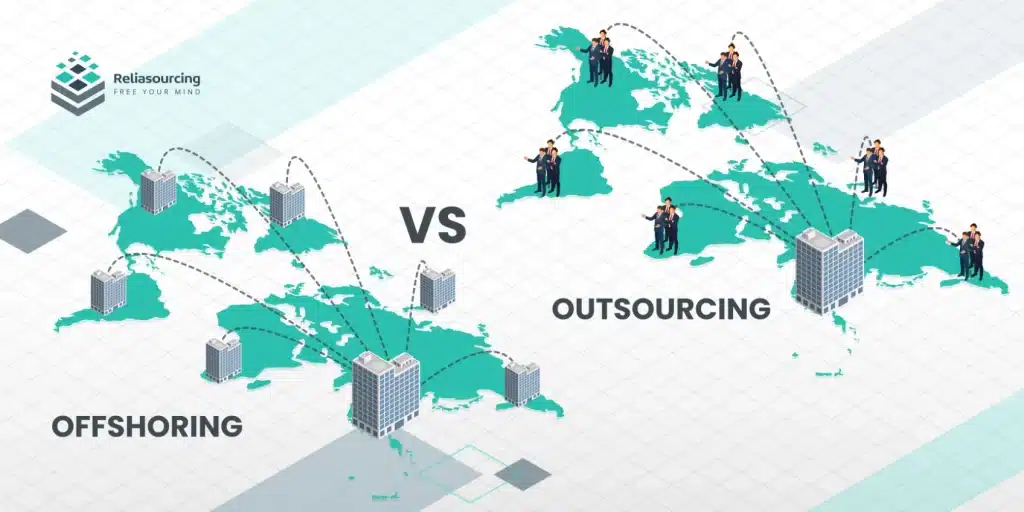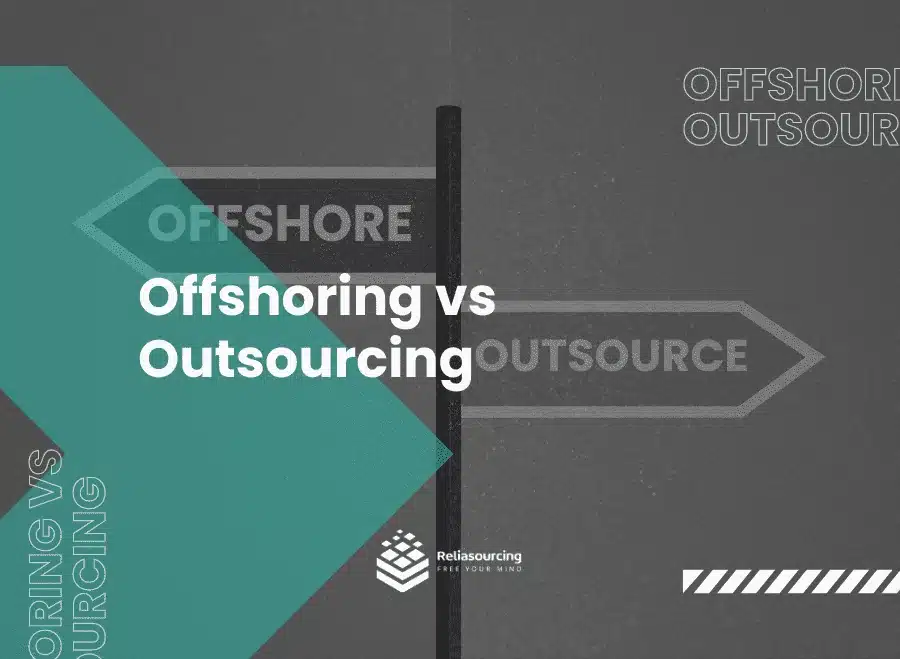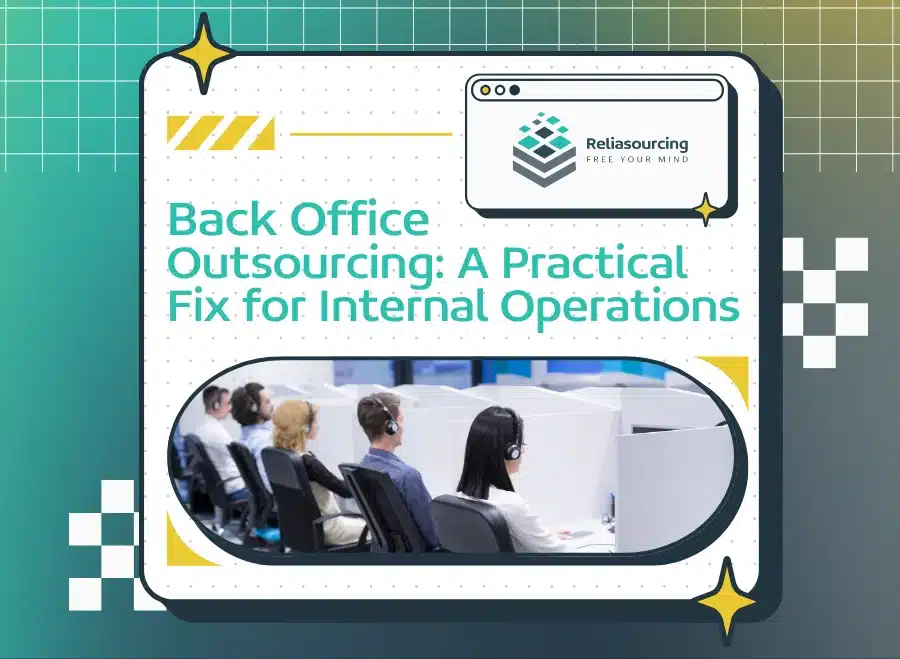Outsourcing vs. Offshoring: Key Differences
Navigating the complexities of modern business strategies like outsourcing and offshoring is essential for companies aiming to optimize their operations and stay competitive. This article aims to demystify these strategies, starting with clear definitions of outsourcing and offshoring.
Defining Outsourcing and Offshoring
One key distinction between outsourcing and offshoring is the level of control and oversight exerted by the company. In outsourcing, the external vendor executes delegated tasks, while the company retains control over core operations. Conversely, offshoring requires the company to manage tasks, remote workforce, processes, infrastructure, and compliance with local laws.
Companies weigh outsourcing and offshoring based on cost-effectiveness, flexibility, cultural alignment, scalability, and risk management. Each strategy has unique advantages and challenges, and decisions depend on specific company goals, resources, and constraints. Understanding outsourcing and offshoring characteristics helps businesses align decisions with long-term objectives and competitive strategies.

What is Outsourcing?
Outsourcing refers to the delegation of specific tasks, projects, or functions to external service providers or vendors. This strategic decision allows businesses to concentrate on their core competencies and primary operations while leveraging the specialized skills, expertise, and resources of external partners. Outsourcing is commonly used for various non-core functions such as customer support, IT services, accounting, human resources, marketing, and manufacturing.
What is Offshoring?
Offshoring involves establishing operational facilities, teams, or subsidiaries in a different country, typically with the primary goal of leveraging lower labor costs, operational expenses, or accessing specialized talent pools. Offshoring is a subset of outsourcing, specifically focusing on relocating operations or functions offshore.
Outsourcing and offshoring are strategic tools that enable businesses to optimize costs, access expertise, enhance flexibility, and focus on core activities, ultimately contributing to improved operational efficiency and competitive advantage.
5 Key Differences Between Outsourcing and Offshoring
Navigating the complex landscape of business strategies often leads companies to two prominent solutions: outsourcing and offshoring. While both aim to streamline operations and reduce costs, they differ significantly in their approach and impact.
Understanding these differences is crucial for businesses seeking to optimize their operations and make informed decisions about the most suitable strategy for their unique needs and goals.

Nature of Work
Outsourcing: This involves delegating specific tasks or functions to an external vendor. For example, a company may outsource its customer support or payroll processing tasks to a specialized service provider.
Offshoring: In contrast, offshoring entails relocating entire operations or jobs to a different country. This could include setting up a manufacturing plant, establishing a regional headquarters, or moving an entire department like IT services overseas.
Management Responsibilities
Outsourcing: When outsourcing, companies give the external vendor the freedom to manage the tasks they have been delegated. The vendor is responsible for executing the tasks efficiently and meeting the agreed-upon deliverables.
Offshoring: requires complete control and oversight of operations by the company itself. This means overseeing not just the tasks but also managing the remote workforce, processes, infrastructure, and ensuring compliance with local regulations.
Cost Savings
Outsourcing: Typically offers short-term cost benefits, especially in terms of operational efficiency and reduced overhead costs. Companies can save on expenses like salaries, training, infrastructure, and maintenance.
Offshoring: Provides long-term cost reductions, primarily due to lower labor costs in the offshored location. Over time, companies can realize significant savings in terms of labor expenses, operational costs, and even tax benefits in some cases.
Workforce
Outsourcing: Involves utilizing the vendor’s employees to perform the outsourced tasks. These employees are not directly employed by the company but work under the vendor’s management.
Offshoring: Requires hiring and managing remote employees directly. The company becomes responsible for recruiting, training, managing, and retaining the offshore workforce, which may include cultural considerations and compliance with labor laws in the offshore location.
Technological Investments
Outsourcing: Relies on the vendor’s technology infrastructure and resources to execute the outsourced tasks. The vendor is expected to have the necessary technological capabilities to deliver the required services.
Offshoring: Requires investment in technology for remote operations. This includes setting up communication channels, IT infrastructure, security protocols, and ensuring seamless connectivity between the offshore location and the company’s headquarters.
Conducting a thorough analysis of your business requirements, considering the above factors, and consulting with experts can help determine the most suitable approach for your business’s needs and goals.
Frequently Asked Questions
Why Do Companies Outsource?
Outsourcing has become a strategic choice for companies looking to optimize their operations. Here are the key reasons why companies choose to outsource:
- Focus on Core Competencies: Through outsourcing non-core functions, companies can direct their resources and efforts towards core business activities that drive growth and competitive advantage. For instance, a software company may outsource its accounting and payroll tasks to focus more on software development and innovation.
- Cost Reduction: Outsourcing can lead to significant cost savings, especially when labor costs are lower in the outsourced location. Companies can save on salaries, benefits, office space, equipment, and other overhead expenses. This cost-effectiveness is particularly beneficial for small and medium-sized enterprises (SMEs) looking to scale efficiently.
- Access to Specialized Skills: Outsourcing allows companies to access a global talent pool and specialized skills that may not be available in-house. For example, a marketing agency may outsource graphic design tasks to a freelance designer with expertise in a specific niche, enhancing the quality of their deliverables.
- Improved Efficiency: Outsourcing certain functions to experienced professionals or service providers can improve overall efficiency and productivity. Tasks are often completed more quickly and accurately, leading to enhanced customer satisfaction and business performance.
What is an Example of Offshoring?
Offshoring involves relocating business operations or services to another country, typically to take advantage of lower labor costs or specific market conditions. Here’s an example of offshoring:
Imagine a telecommunications company based in the United States that decides to establish a call center in the Philippines. They choose the Philippines due to its skilled workforce, lower labor costs compared to the U.S., and a favorable business environment. Businesses offshoring their customer support operations to the Philippines can reduce operational expenses significantly while maintaining service quality.
What is Nearshore Outsourcing?
Nearshore outsourcing is a strategic approach where companies contract services or operations to a nearby country with geographical and cultural proximity. Here’s what nearshore outsourcing entails:
Consider a software development company based in Europe that outsources its technical support services to a neighboring country like Poland. This arrangement offers several advantages such as similar time zones, cultural alignment, ease of communication, and cost-effectiveness compared to offshoring to a distant location like Asia. Nearshore outsourcing enables companies to leverage talent and resources in nearby regions while minimizing logistical challenges.
Meet Reliasourcing: Industry-Leading Outsourcing Solutions

Reliasourcing stands out as an industry leader in providing outsourcing solutions, leaning into clients in the tech industry, including gaming and entertainment, as well as e-commerce. Here’s how Reliasourcing adds value to businesses in these sectors:
- Specialized Expertise: Reliasourcing understands the unique challenges and demands of the tech industry. With a team of experts well-versed in the intricacies of gaming, entertainment, and e-commerce, the company offers tailored solutions that align with industry standards and best practices.
- Innovative Strategies: In the rapidly evolving tech landscape, innovation is key to staying ahead. Reliasourcing collaborates with clients to develop innovative strategies that drive growth, enhance customer experience, and optimize operational efficiency. The company stays updated with the latest trends and technologies, ensuring that clients receive insights into cutting-edge solutions.
- Performance Analysis: For tech companies, performance metrics are crucial for success. Reliasourcing provides in-depth performance analysis tailored to the tech industry, focusing on metrics relevant to gaming, entertainment, and e-commerce. This allows clients to make data-driven decisions and continuously improve their operations.
- Continuous Consultations: In the fast-paced tech environment, staying informed is vital. Reliasourcing provides ongoing consultations to keep clients updated on the latest developments, industry trends, and best practices in customer care. This ensures that tech teams are equipped with the knowledge and skills to deliver high-quality services and stay competitive in their respective markets.
As you consider your outsourcing or offshoring strategies, remember that the decision depends on various factors such as cost-effectiveness, operational flexibility, workforce management, technological investments, and long-term business goals. Conducting a thorough analysis of your requirements and consulting with experts can help determine the most suitable approach.
Looking for outsourcing solutions? Consider partnering with Reliasourcing. With a focus on the tech industry, including gaming and entertainment, as well as e-commerce, Reliasourcing offers specialized expertise, innovative strategies, performance analysis, and continuous consultations.
Take the next step toward optimizing your business operations by leveraging the unique advantages offered by Reliasourcing.









